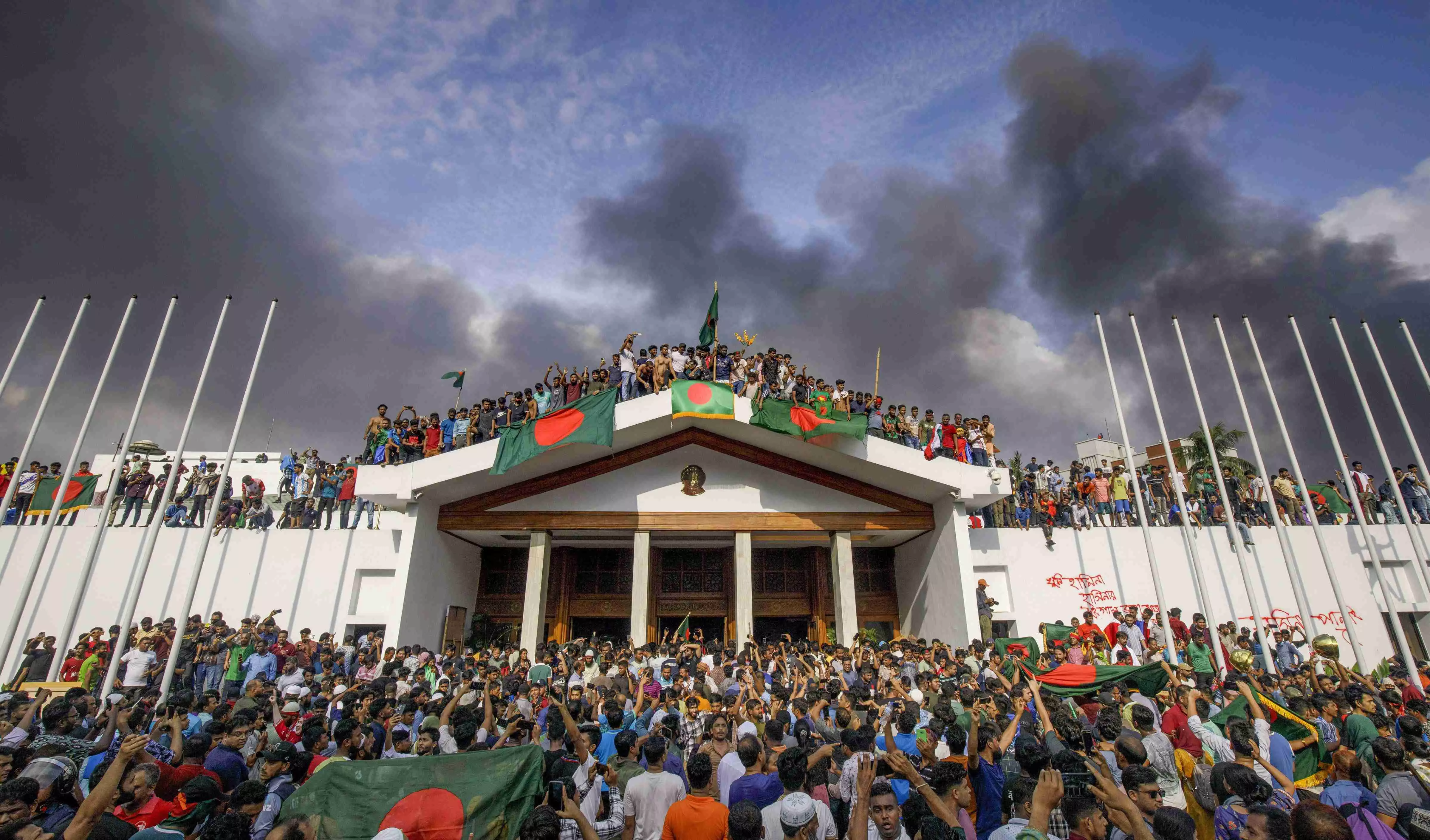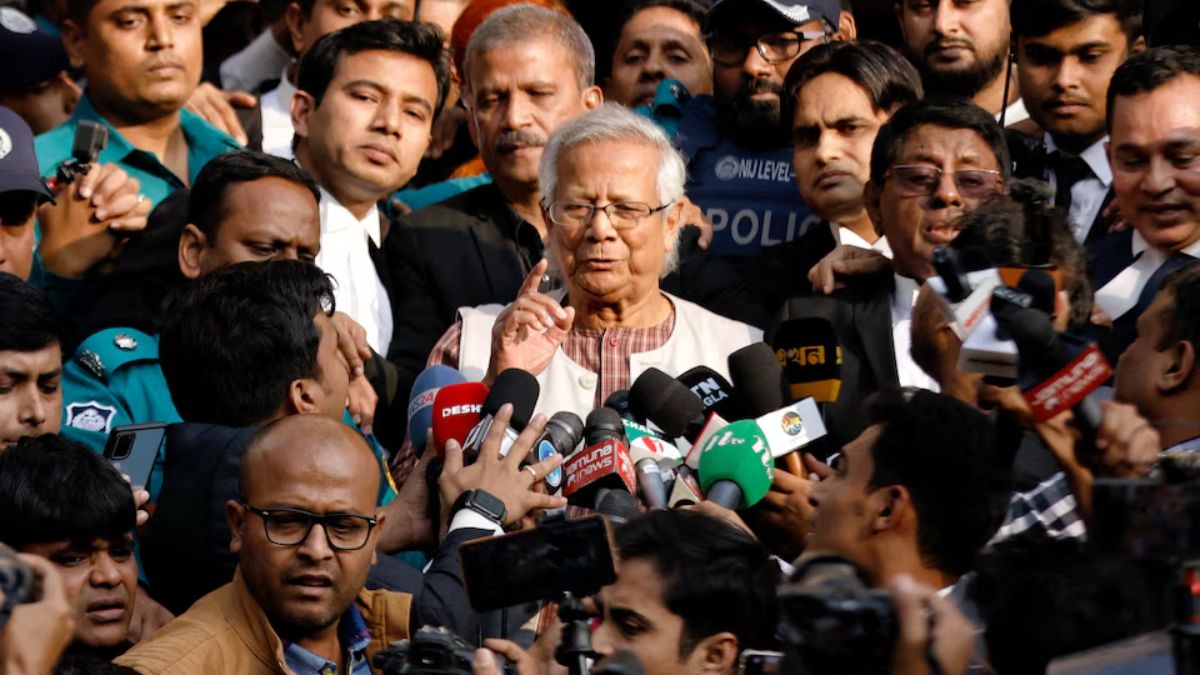Bangladesh Shocks the World by Choosing Wisdom Over Wealth.

Bangladesh Chooses Vision Over Venality – Yunus Takes the Helm.
Bangladesh is a country that is living proof of, “Knowledge is Power.”
Students brought down the Autocrat, where Democracy turned into Autocracy and student protests brought it down to the ground and are rebuilding the Democracy, the ‘Freedom’.
As all these shocking turns of events took place, Muhammad Yunus the renowned Bangladeshi economist and social entrepreneur, and Nobel Peace Prize laureate, has been appointed as the Interim leader of Bangladesh.
Muhammad Yunus the founder of Grameen Bank is now the caretaker Prime Minister of Bangladesh, who is tasked with overseeing the country’s administration until a new government is formed.
Yunus is a very respected figure known for his work in social entrepreneurship and microfinance. His appointment is seen as definitely a positive step towards ensuring a smooth transition and also maintaining the stability of the country.
Bangladesh right now is going through a tumultuous period of political upheaval, and Yunus is tasked with navigating the country through it. He does bring a unique set of skills to the role, but can he calm the stormy waters of Bangladeshi politics?

The nation is teetering on the brink of political chaos, as it grapples with the aftermath of Prime Minister Sheikh Hasina’s resignation on August 5, 2024. This unexpected move comes at a critical juncture in the country’s history, although Yunus’s appointment is held as a beacon of hope by some, others are raising eyebrows with the question of his lack of direct political experience.
A bitter political struggle between the ruling Awami League and the opposition Bangladesh Nationalist Party (BNP) has been embroiling the country. The conflict has escalated with the resignation of Ms. Hasina, leaving the power that Yunus now must take over.
So now Yunus is facing the daunting task of rebuilding trust and stability in a country torn apart by political divisions. His appointment has met with both optimism and skepticism.
His immediate priorities will be to restore order, ensure free and fair elections, and address the country’s pressing economic and social issues. Although the Awami League and the BNP are still at loggerheads, the path forward will be fraught with challenges for him. As Bangladesh navigates uncertain terrain, Yunus’ leadership will be put to the test.
The appointment of Muhammad Yunus as interim leader of this country is a complex and multifaceted development.
Political crisis: The country has been facing a severe political crisis, with the ruling Awami League and the opposition BNP at loggerheads. This situation needed a neutral figure to step in and stabilize the country.
Sheikh Hasina’s resignation: Prime Minister Sheikh Hasina’s resignation mainly created a power vacuum, and Yunus’s appointment was to fill the gap, ensuring continuity and preventing further chaos.

- Student protests: The main reason for the Student Protests in Bangladesh which led to Prime Minister Sheikh Hasina’s resignation was the demand to remove the caste system. The caste system in this country persists in various forms, perpetuating social inequality and discrimination. For so long students from marginalized communities, particularly those from lower castes, have faced systematic barriers, exclusion, and violence.
The protests aimed to,
Abolish the caste system: Students of this country demanded the complete eradication of the caste system and its associated economic and social inequalities.
End caste-based discrimination: Protesters have sought to put an end to the discrimination forever and harassment, and violence against individuals from lower castes.
Promote social equality: The movement mainly advocated for equal opportunities, rights, and representation for all, regardless of anyone’s caste or social background.
Hold the government accountable: Students held their government responsible for this, for failing to address the persistence of the caste system and demanded a concrete action to dismantle it altogether.
Education reform: Students have been demanding reforms to the education system, including changes to the curriculum and examination process for a long time, as well the inadequate infrastructure.

Government corruption: Allegations of corruption and mismanagement within the government were also a major cry of the rallying protesters. Also, Hasina’s government was accused of embezzlement, cronyism, and abuse of power.
Road safety concern: The protests were also fueled by a series of fatal road accidents, including the death of two students in Dhaka. Highlighted the concern for improving road safety measures.
Students were concerned about the country’s economic situation, including high unemployment, inflation, and corruption. Students’ voices were not being heard, and they felt the lack of representation in the government and decision-making process.
Students drew inspiration from global movements like The Arab Spring, Occupy Wall Street, and climate change protests.
The international community, including the United Nations and Western governments, also may have exerted pressure on Ms. Hasina to step down due to concerns over human rights, democracy, and governance.

The students who protested against Prime Minister Sheikh Hasina’s government also specifically demanded that Muhammad Yunus, the Nobel laureate should take over as the leader of the country.
The students saw him as the symbol of hope for them, and a potential agent of change, who could bring about the reforms and social justice they desired and fought for.
Mr. Yunus is perceived as a neutral figure, unattained by party politics and corruption.
Yunus’s work in social entrepreneurship and microfinance has improved the lives of millions. Students also hoped that he would bring similar reforms to the country.
Muhammad Yunus is known for his integrity and transparency, qualities that students felt were lacking in the previous government.
By demanding Mr. Yunus’s leadership, students were calling for a new era of governance, one that prioritizes the needs of the people, especially the marginalized and the oppressed.
The students’ demand for Muhammad Yunus’s leadership played a significant role in the events that happened which ultimately led to his appointment as interim leader.
Also, Yunus’s appointment may be seen as an attempt to promote national unity, since he is widely admired across party lines as well. His leadership could bridge the gap between rival factions and foster a sense of national cohesion. He could bring stability, credibility, and hope to a nation in crisis.
The protests marked a significant moment in Bangladesh’s history, as students challenged the deeply ingrained social hierarchy, and pushed for a more inclusive and equitable society.
Muhammad Yunus was reportedly surprised by the offer and humbled by the trust that was placed in him. Yunus took time to reflect on the offer and eventually accepted the role, feeling a deep sense of responsibility to serve his nation and address the pressing issues.

Yunus emphasized his commitment to remain neutral and impartial, and to work for the benefit of all Bangladeshis, regardless of political affiliation. He also outlined his vision for a more inclusive, equitable, and prosperous Bangladesh, where the rights and dignity of all citizens are to be respected.
He also urged all parties and stakeholders to work together, putting aside their differences, to address the country’s challenges, and to build a brighter future together.
He vowed to “uphold, support and protect the constitution.”
“Bangladesh can be a beautiful country, but we destroyed the possibilities,” he said, “Now we have to build a seedbed again – the new seedbed will be built by them” he mentioned by gesturing to the students.
He mentioned “people are excited” and his message to his countrymen, “Discipline, discipline and hard work.”




